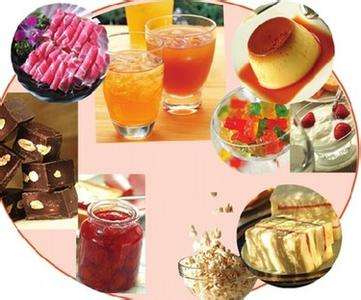When it comes to food additives, people have a bad impression of it. It is nothing but poisonous, no nutrition, aggravating the body burden and so on.
But food additives are an integral part of modern food.
"Food additive" means any synthetic or natural substance added to food for the purpose of improving its quality and color, aroma and taste, as well as for the purposes of preservation, preservation and processing.
Today we're going to learn about some of the benefits of food additives.
The role of food additives
According to the data show that China's food additives can be divided into 23 categories, and the species can be as many as more than 2000.
Food additives are used for the following purposes:
1. Prevent spoilage, extend the shelf life of food, prevent food poisoning caused by microorganisms, delay or inhibit food oxidation, improve food stability, and easier storage.
Make sure the food is available in different environments and in different seasons.
2. Change the color, aroma and taste of food to meet people's needs for different tastes and tastes of food.
3. Improve the nutritional value of food.
Food additives are not necessarily all without nutrition, some additives can also strengthen food nutrition, or reduce food calories, help to promote the balance of nutrition and improve human health.
4. Make food easy to carry, eat and increase sales.
5. Make food production and processing more convenient.
Such as the use of viscous agent, stabilizer or coagulant, so that the production more convenient, more conducive to mechanization, automation.

Here are some of the benefits of common food additives in detail:
sweeteners
Sweeteners are one of the most commonly used additives. We used to think that sweeteners used sugar and, better yet, honey.
But high fructose corn syrup is also a sweetener.
When used together with sugar, it can increase sweetness and prolong the shelf life of food. It has a certain preservative effect.For example, xylitol is also a sweetener, which increases sweetness but does not increase calories, so it is suitable for diabetics to eat.
thickener
Thickening agents, usually pectin, AGAR, etc., are actually soluble dietary fiber, which not only does not increase food calories, but also can make up for the lack of dietary fiber in modern diets.
preservatives
There are many types of food preservatives, not just the salt or sorbic acid we recognize.Some preservatives in foods also have nutritional value, such as vitamin E, which is added to foods as an antioxidant to extend their shelf life.Preservatives can prevent food spoilage caused by microorganisms, prolong the shelf life of food, and prevent food poisoning caused by microbial contamination.
Antioxidants prevent or delay oxidative spoilage of food to provide stability and storage resistance, as well as prevent the formation of potentially harmful lipid autooxides.In addition, it can also be used to prevent enzymatic Browning of foods, especially fruits and vegetables, and non-enzymatic Browning.All of these have some significance for the preservation of food.
Flavoring agent
Flavoring agents include a variety of amino acids, such as glycine, alanine, and lysine, to enhance the taste and flavor of food. The human body can also obtain amino acids from these additives.
Nutritive fortifier
Food additives also include some nutritional fortifiers, such as vitamins A, B, C, D and K, as well as calcium, iron, zinc and selenium.Although these are also known as additives, they are essential nutrients for the human body, and they are necessary for special groups, such as infants who eat milk powder and elderly people with osteoporosis.
In addition, the addition of toxic food does not necessarily mean that the food is inedible, nor does it mean that the food is inedible.Some food additives are toxic and can cause poisoning if ingested in excess.But in the use of food, consumption is very small, will not occur poisoning events, at the same time the state also has provisions for the consumption of food additives.
133-9957-8799
E-mail:zgspkj@163.com
Add:Building 13, Phase I Standardized Factory Building, Xiaoxian Economic Development Zone, Suzhou City, Anhui Province

Scan, learn more